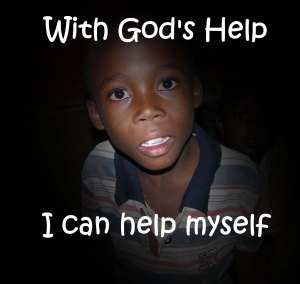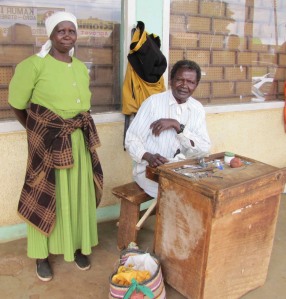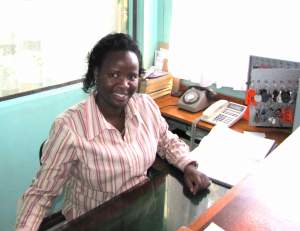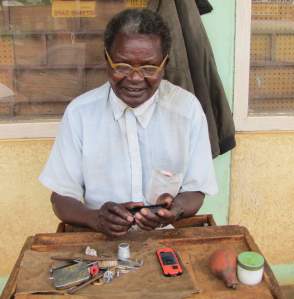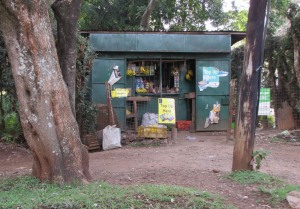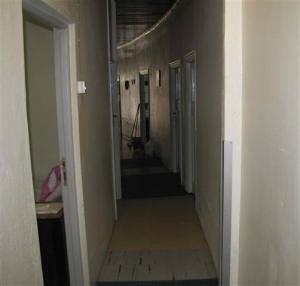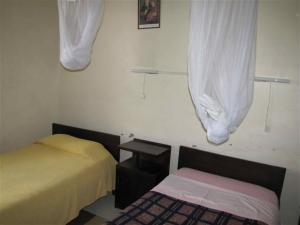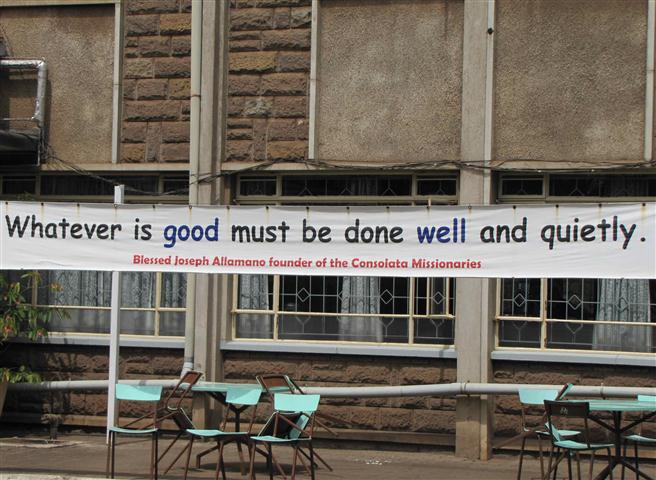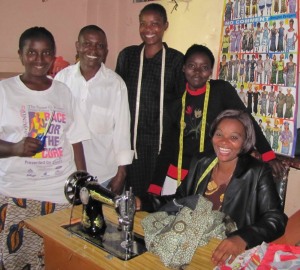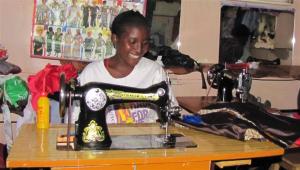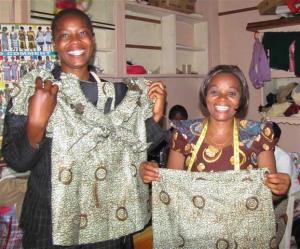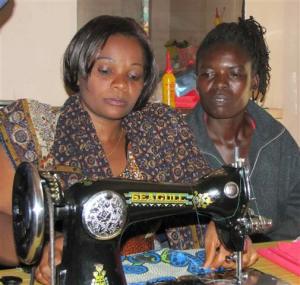— Let's Change Our World
 Roger
Roger
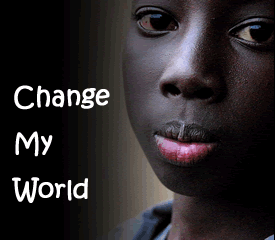 As I head off to Africa this week, these words are ringing in my spirit. “Let’s Change Our World.” As I reflect on the needs that are all around me where I live and then the dire needs of those whom I will be with this month who live on so little, I still find myself wondering, “Can I believe that the Jesus-filled life really, truly has the ability to change a world?”
I am concerned that we often lose faith and succumb to a life of survival rather than a life believing that we, as God’s people, are designed to turn our world upside down.
I wrote this on my Facebook status as I was reflecting on this:
As I head off to Africa this week, these words are ringing in my spirit. “Let’s Change Our World.” As I reflect on the needs that are all around me where I live and then the dire needs of those whom I will be with this month who live on so little, I still find myself wondering, “Can I believe that the Jesus-filled life really, truly has the ability to change a world?”
I am concerned that we often lose faith and succumb to a life of survival rather than a life believing that we, as God’s people, are designed to turn our world upside down.
I wrote this on my Facebook status as I was reflecting on this:
 Granted, we do want to change our world, we do want to see lives changed, we do care about others, but we often put our faith in the wrong things: government, churches, ministries, spiritual leaders, political leaders, others—and we forget that everything that is needed to change our world, make an impact, release Kingdom life, bring joy out of ashes, relieve suffering, and lift oppression is already in us. It’s in us. He’s in us. He changes the world through us.
And the tools are not political or religious, they are the basic tools that work when we work them: prayer, faith, generosity, love, stepping into who God made us to be, risking going where God leads. It’s not that we don’t know these tools, it’s that we lose faith in them rather than exercise them into the world-changing potential that they have!
Okay, so let me bring this down to my own life. My heart is stirring. I am going to Africa once more, but I do not want to just see more trainings, more churches, more handouts to the needy, more letters back home asking to support the “work” in Africa. All of this may be quite good. But my heart is seeking world-changing stuff. Is that too big? Too much to long for? Can I believe for it?
I have often quoted Max Lucado who said: “God has given this generation, our generation, everything we need to alter the course of human suffering.”
The question is, do I really believe this? And if I do, how does it impact my work among people whose needs are staggering?
And then, am I willing to stir up the tools that God has given all of us and believe that they have world-changing, life-changing power in them…
Prayer—I want to ask you who are praying with me to believe—really believe—that we are going to step into new dimensions of discipling people that will free them from poverty and give them the faith to change the lives of others—who will touch others—who will multiply life to still others.
Faith—“I believe, help my unbelief.” I want to step out of the limitations that come from thinking like this world—that our resources are limited, that I can only do what is “reasonable,” that miracles are rare. I want to believe that God will unleash, from the band of leaders in Africa that I work with (and back home), a movement that will transform a world and stir hearts in every nation.
Generosity—I want to live out the Abrahamic covenant that God is, even now, blessing me so that my life, and everything in it, can be a blessing to others through me. I want to remove the limitations on how God wants to bless me, and I want to live out of the purpose for that blessing which is that others would be blessed through me.
Love—I want to reawaken myself and the whole church to this truth: “They shall know me by your love.” There is no greater power; Jesus has given this power to us by the Spirit; yet we are known by so many other things than love. The time is now to change this. His love through His people has the power to revolutionize our world.
Risking—Risking to go and do whatever it is that God made us to go and do. I am inspired when I see God raising up a generation of young people who want to change their world. This is kingdom thinking! This is God at work! They are not just thinking in terms of starting churches, they want to see the kingdom come to every aspect of our world so that poverty is alleviated, leaders are just, love is more than just a word, and Jesus is glorified through the many powerful and creative ways He chooses to express Himself. When the church is released to get out of the church walls and be the salt and light everywhere… everywhere… our world will turn upside down. I want to think this way myself! And risk going wherever and whenever.
Therefore—my goals for my current trip are:
1. Unleash these powerful, spiritual tools in my life. Will you pray with me as I will pray that God will do the same for you?
2. Believe in God’s power to change people, even the poorest of the poor, from the inside out. Helping the poor is not just about giving them things. In fact, this often is the worst thing we can do It’s about the power of God’s word freeing them from the bonds of wrong-thinking that keep them in poverty. This is a significant focus of this trip and I will share more as we go.
3. Connect two-third’s world people with people at home—personally—and create some high touch connections between the two. (More on this also as we go).
Let’s Change Our World. No one can do this alone, but together…
Granted, we do want to change our world, we do want to see lives changed, we do care about others, but we often put our faith in the wrong things: government, churches, ministries, spiritual leaders, political leaders, others—and we forget that everything that is needed to change our world, make an impact, release Kingdom life, bring joy out of ashes, relieve suffering, and lift oppression is already in us. It’s in us. He’s in us. He changes the world through us.
And the tools are not political or religious, they are the basic tools that work when we work them: prayer, faith, generosity, love, stepping into who God made us to be, risking going where God leads. It’s not that we don’t know these tools, it’s that we lose faith in them rather than exercise them into the world-changing potential that they have!
Okay, so let me bring this down to my own life. My heart is stirring. I am going to Africa once more, but I do not want to just see more trainings, more churches, more handouts to the needy, more letters back home asking to support the “work” in Africa. All of this may be quite good. But my heart is seeking world-changing stuff. Is that too big? Too much to long for? Can I believe for it?
I have often quoted Max Lucado who said: “God has given this generation, our generation, everything we need to alter the course of human suffering.”
The question is, do I really believe this? And if I do, how does it impact my work among people whose needs are staggering?
And then, am I willing to stir up the tools that God has given all of us and believe that they have world-changing, life-changing power in them…
Prayer—I want to ask you who are praying with me to believe—really believe—that we are going to step into new dimensions of discipling people that will free them from poverty and give them the faith to change the lives of others—who will touch others—who will multiply life to still others.
Faith—“I believe, help my unbelief.” I want to step out of the limitations that come from thinking like this world—that our resources are limited, that I can only do what is “reasonable,” that miracles are rare. I want to believe that God will unleash, from the band of leaders in Africa that I work with (and back home), a movement that will transform a world and stir hearts in every nation.
Generosity—I want to live out the Abrahamic covenant that God is, even now, blessing me so that my life, and everything in it, can be a blessing to others through me. I want to remove the limitations on how God wants to bless me, and I want to live out of the purpose for that blessing which is that others would be blessed through me.
Love—I want to reawaken myself and the whole church to this truth: “They shall know me by your love.” There is no greater power; Jesus has given this power to us by the Spirit; yet we are known by so many other things than love. The time is now to change this. His love through His people has the power to revolutionize our world.
Risking—Risking to go and do whatever it is that God made us to go and do. I am inspired when I see God raising up a generation of young people who want to change their world. This is kingdom thinking! This is God at work! They are not just thinking in terms of starting churches, they want to see the kingdom come to every aspect of our world so that poverty is alleviated, leaders are just, love is more than just a word, and Jesus is glorified through the many powerful and creative ways He chooses to express Himself. When the church is released to get out of the church walls and be the salt and light everywhere… everywhere… our world will turn upside down. I want to think this way myself! And risk going wherever and whenever.
Therefore—my goals for my current trip are:
1. Unleash these powerful, spiritual tools in my life. Will you pray with me as I will pray that God will do the same for you?
2. Believe in God’s power to change people, even the poorest of the poor, from the inside out. Helping the poor is not just about giving them things. In fact, this often is the worst thing we can do It’s about the power of God’s word freeing them from the bonds of wrong-thinking that keep them in poverty. This is a significant focus of this trip and I will share more as we go.
3. Connect two-third’s world people with people at home—personally—and create some high touch connections between the two. (More on this also as we go).
Let’s Change Our World. No one can do this alone, but together… 
